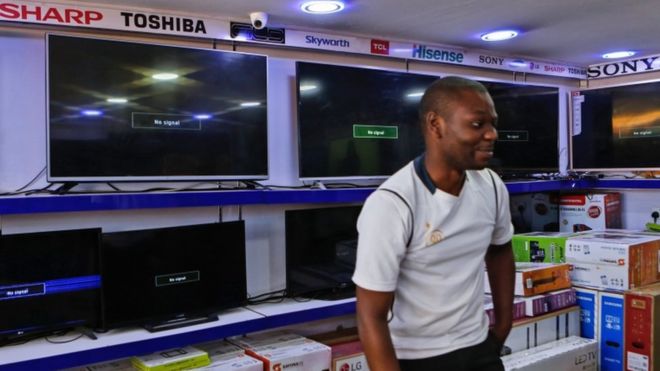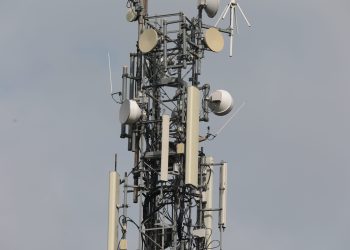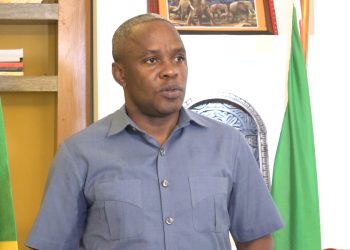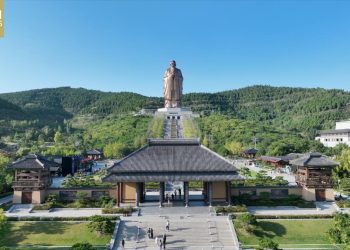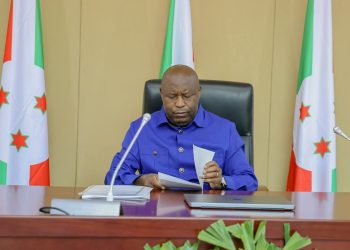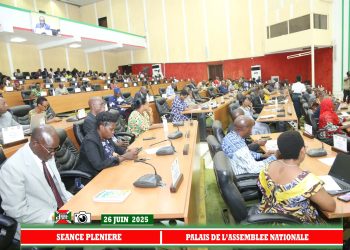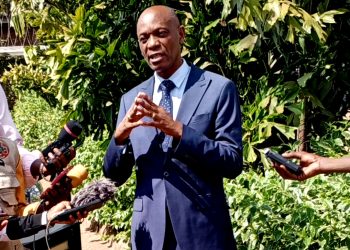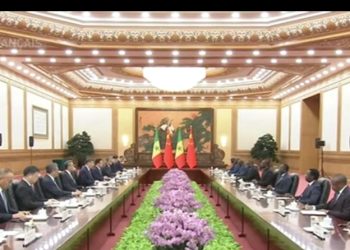With Kenya’s most popular television stations off-air for five days running, many people are finding alternative ways to spend their time.
At a bar in Nairobi’s Kibera neighbourhood, Maurice chats with his friends over a beer.
He says he has no reason to go home early because his favourite channels are off.
“I only watch Citizen TV, KTN news or NTV,” he says. “I feel so bad.”
The three channels command more than two-thirds of the entire television viewership in Kenya.
There are other, less popular broadcasters of news – like state-owned KBC, which aired a documentary on penguins rather than broadcasting opposition leader Raila Odinga’s unofficial “inauguration” on Tuesday.
The other is K24, a privately-owned channel linked to President Uhuru Kenyatta’s family.
I have resorted to social media. I can’t stomach KBC and K24,” is the blunt assessment of Martin Biwott, a civil educator from Eldoret in western Kenya.
Neither channel seems to be attracting news-hungry viewers exiled by the blackout elsewhere, many of whom have labelled KBC “boring” and K24 as leaning towards the state.
One journalist has pointed to the irony of K24, with its links to the president’s family, hosting a debate on whether the government decision to take broadcasters off the air was a “crackdown on subversion”.
Citizen Television usually enjoys more than half of the ratings pie, according to 2017 data from market researcher Ipsos Synovate.
The rest of the Kenyan TV broadcasters, made up of more than 40 other channels, either have niche audiences or are just struggling for oxygen beneath the giants.
- 30 Jan: Kenyan authorities order Citizen TV, KTN and NTV to halt transmission for attempting to broadcast a rival “inauguration” staged by opposition leader Raila Odinga
- Mr Odinga brands himself “the people’s president” at the ceremony; he maintains that last year’s presidential election was flawed, and many of his supporters boycotted the re-run which followed
- The event is labelled “treasonous” by President Uhuru Kenyatta and a “serious breach of security” by the interior minister
- 1 Feb: High Court orders Kenya’s government to switch TV stations back on until a case is heard and determined
- But the three channels – Citizen TV, KTN and NTV – remain off-air, and the state is yet to officially comment on the order
So with the biggest channels off air, what are TV addicts turning to?
Pay-as-you-watch television rooms, known as video halls, keep residents of Kenya’s poorer neighbourhoods entertained with classic Kung Fu and action movies.
While in rural Kenya, people watch TV at home or at their neighbours’ homes.
These rural and informal settings are how the majority of Kenyans watch TV.
- Raila Odinga – love him or loathe him
- Kenya’s Odinga holds rival ‘inauguration’
- Uhuru Kenyatta: Kenya’s ‘digital president’
At the video halls, martial arts movies are usually interrupted at 19:00 each night to make way for primetime news, which one can watch for the price of a cup of tea and a Mandazi bun – a kind of fried bread.
Usually, these folk watch KTN, NTV or Citizen News. But right now, with no news, it is non-stop action fare. Cue Sylvester Stallone’s Rambo for the umpteenth time.
Embracing the blackout
But some Kenyans seem to be enjoying the blackout of the three big broadcasters. Some are finding more time to bond with family.
“It’s pretty good actually,” says Ruth Nduta. “There’s minimal political intrusion in the living room. Now it’s politics on demand through the net and social media. I could get used to this!”
Anne Murungi, who works in tourism, agrees. ”For me it was a breath of fresh air. I just needed a world away from politics and this shutdown just did it for me,” she says.
“Interestingly, I didn’t miss news at all because I got what I wanted – like business news – from other sources.”
Politics as a topic never dies in Kenya. But political burnout was inevitable after last year’s contested presidential election and the repeat vote that followed.
It meant a double-dose of campaigns, political news and analysis for weary Kenyans.
‘Bias and bile’
The blackout of Kenya’s biggest broadcasters has prompted some viewers to reflect on the standards they expect from national news coverage.
”Instead of getting quality and informative news, all we get every morning are ‘political analysts’ who are biased and full of bile,” says Mbuthia Nganga, a resident of Nairobi.
The TV shutdown has also alarmed rights groups, with Amnesty International describing the shutdown as an assault on press freedom and urging the state to respect people’s right to information.
Beyond the news, some Kenyans also say they miss the entertainment shows on offer, particularly local content.
Programmes like NTV’s Auntie Boss and Citizen TV’s Papa Shirandula are very popular.
Luckily, for lovers of KTN programmes I spoke to like Francisca Opechuku, the station has a dedicated entertainment channel, KTN Home, which wasn’t switched off.
However it stopped airing news when its sister channel KTN News was taken off-air.
To keep their newsrooms running, KTN News, NTV and Citizen all retreated to the same place many Kenyans went – social media.
They have been streaming their news output on YouTube or their websites, as well as posting on Facebook and Twitter.
But this hasn’t made up for the blackout – while Kenya is a connected nation with internet penetration rates of more than 80%, mobile data is mostly expensive and out of reach for many.
BBC

